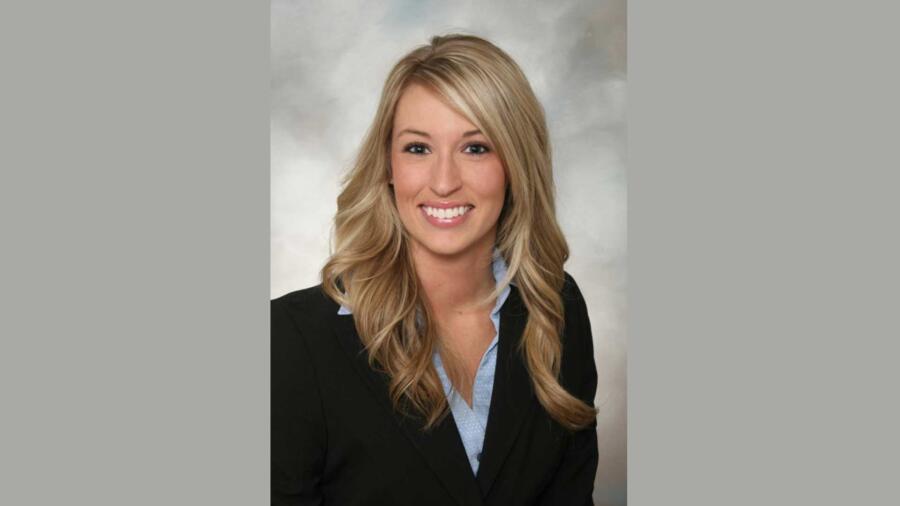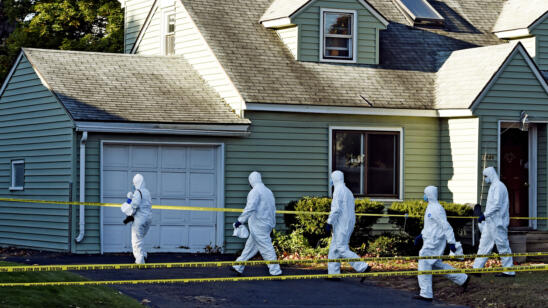On April 8, 2011, 27-year-old real estate agent Ashley Okland was holding an open house for a model townhome in the quiet, upscale suburb of West Des Moines, Iowa on a sunny afternoon—something the successful agent had done many times before. Shortly before 2 p.m., a nearby employee working in the complex heard a commotion inside the townhouse and went to investigate. Inside, the worker discovered Okland unconscious and bleeding on the floor and called 911.
Medics rushed Okland to a Des Moines trauma center, where she later died of two gunshot wounds.
West Des Moines Police found the crime scene inside the home baffling, with no signs of a struggle, no evidence of theft or sexual assault, no clear apparent motive.
Okland’s case quickly became national news. Despite nearly 900 leads and 500 interviews in the ensuing years, it went cold and remains unsolved.
The Beverly Carter Case
Okland’s murder, while shocking, seemed unusual in the real estate business at the time. But just three years later, on September 25, 2014, 50-year-old real estate agent Beverly Carter, a top agent in Arkansas, disappeared while showing a house to a prospective male client in Scott, Arkansas, an isolated area outside of Little Rock.
After Carter’s body was discovered in a shallow grave two weeks later, suspects Aaron Lewis and his estranged wife Crystal Lowery were eventually arrested, tried and convicted of Carter’s abduction and murder. They admitted to setting up a fake house showing with Carter so they could kidnap her for ransom—and then killing her when the plot went awry. Lewis was sentenced to two life terms and Lowery was sentenced to 30 years in prison.
Disturbing Statistics
The Okland and Carter cases reflect a disturbing pattern of real estate industry violence that affects professionals in the field, regardless of age, location and even gender.
According the U.S. Bureau of Labor and Statistics, 23 real estate-related professionals died from violence on the job in 2022. And a 2022 safety survey conducted by the National Association of Realtors (NAR) revealed that 2 percent of residential real estate agents were victims of a crime while on the job, meaning 30,000 of the 1.5 million agents reported they were victims of a robbery, physical attack or sexual assault. The survey also found that 23 percent of respondents reported feeling concerned for their safety.
In the case of Beverly Carter, when Lewis was asked why he targeted her, he responded, “Because she was just a woman that worked alone—a rich broker.”
For Jen Stanbrough, a managing broker in West Des Moines and close friend and former co-worker of Ashley Okland, April 8 is a day that will always haunt her.
“In looking back over my early real estate days, I had experienced several unsettling incidents or realized I’d placed myself in scenarios or positions which had left me vulnerable,” Stanbrough tells A&E True Crime. “I hadn’t been taught or thought about precautions.”
But Okland’s murder inspired Stanbrough to get serious about real estate agent safety. She became a founding member of the Des Moines Area Association of Realtors’ Safety Committee, and helped author the REALTOR® Safety Pledge and the National Association of Realtors Safe Showing Listing Form, a tool used to talk with sellers about the importance of their own safe practices.
Push for Safety Practices
Stanbrough regularly keeps Okland’s story alive to warn other real estate professionals about the dangers they potentially face in the field.
“It can happen to you, to one of your friends, a colleague or family member,” she told attendees at a recent safety webinar in September 2023 for REALTOR® Safety Month. “I don’t tell you that to scare you; I want you to be prepared.”
Here are a few safety tips from Stanbrough and Geoff Fahringer, a NAR safety instructor and law enforcement officer:
- Run background checks on new clients. Stanbrough also searches clients on Facebook to see if they have any mutual connections. She urges real estate professionals to Google names of clients to see what other information surfaces.
- Make your contact records and calendars detailed.In her client contacts database, Stanbrough keeps detailed information beyond just the person’s name, phone number, email address and home address. She also suggests using shareable calendars within an office so coworkers know your whereabouts.
- Stay in touch with emergency contacts. Stanbrough uses Life360 and the Find My Phone feature on her iPhone in the field.
- Practice situational awareness. Fahringer advises parking in well-lit and visible locations, and where an agent’s car can’t be blocked in, like a driveway. He also recommends not getting distracted by smartphones, carrying only nonvaluable items and leaving any situation that feels “off” or unsafe.
- Practice precautions during open houses or showings. Both Stanbrough and Fahringer suggest using a buddy system, and to always have clients walk in front of an agent when showing a home, directing from a position at least three to four arm’s length behind. They also recommend using technology, such as portable security cameras, at open houses to stream live on the web for an extra layer of safety; using guest registrars with full name, address, phone number, email and vehicle information; showing properties before dark; and checking cell service and charging phones ahead of showings.
While Stanbrough feels “overall real estate safety has improved” through awareness and trainings like Farhinger’s webinars, “agents are [still] sometimes willing to put a potential sale above the need for safe practices.”
She acknowledges it is easy to get complacent and slip back into old habits, but, “we have to continue training and implementing safe practices every day. Let’s hold each other accountable.”
Anyone with information about Okland’s murder can report it to Crime Stoppers of Central Iowa by calling 515-223-1400 or 800-452-1111, or submit it online at crimestoppersofcentral.com or on the app P3TIPS.com.
Related Features:
The Work of a Cold Case Detective: Finding Answers Years After a Crime
How a Group of Active and Retired Homicide Investigators Anonymously Solve Cold Cases
The Cold Case Murders That Keep Retired Detectives Up at Night


